10 Top Tips on How to be a more Sustainable Tourist
Author: Maheshwari Vickyraj
09 July 2024
10 min read

Lots of us already lead eco-conscious lives. Whether it’s the swap to a reusable coffee cup, riding a bike to work or using a green energy provider, it’s all good, but there’s one biggie we shouldn’t overlook – our holidays.
But sustainability isn’t just about hotels cutting back on washing towels, it means considering our needs with the needs of those around us, and generations to come. When was the last time you considered carbon emissions, waste and other certified bad stuff produced by the travel industry? Or thought about how much your holiday hobbies impact the local community? Thankfully, there are different ways to venture the world without doing damage, and you’ll also have your chance to support the locals as a bonus!
Here are 10 top tips to bear in mind when planning your next holiday: So, pack your eco-friendly sunscreen, shopping bag and water bottle and enjoy a green getaway.
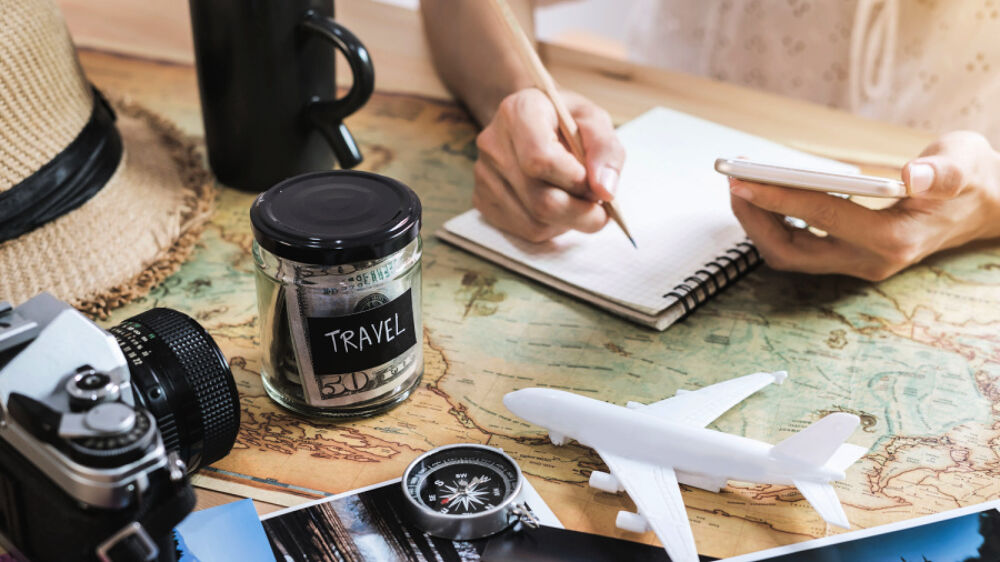
1. Check out the destination
Before your holiday, a little research on your chosen destination always comes in handy! So grab a cuppa and get online to jot down a few useful words in the spoken language, find out about the local culture and traditions, learn about its environment and biodiversity as well as how to get off the beaten path and avoid tourist traps!
2. Pre Holiday Shopping
Did you know that the fashion industry hugely contributes to the planet’s greenhouse gas emissions and plastic particles in man-made fabrics, such as polyester end up in our oceans? If you really need to splash out on new bikinis and holiday outfits beforehand, think about buying from a green and ethical business. You could also have more fun shopping at bazaars and local establishments as part of your holiday fun, where you might not only pick up enviable bargains, but also help to give back to the local community.
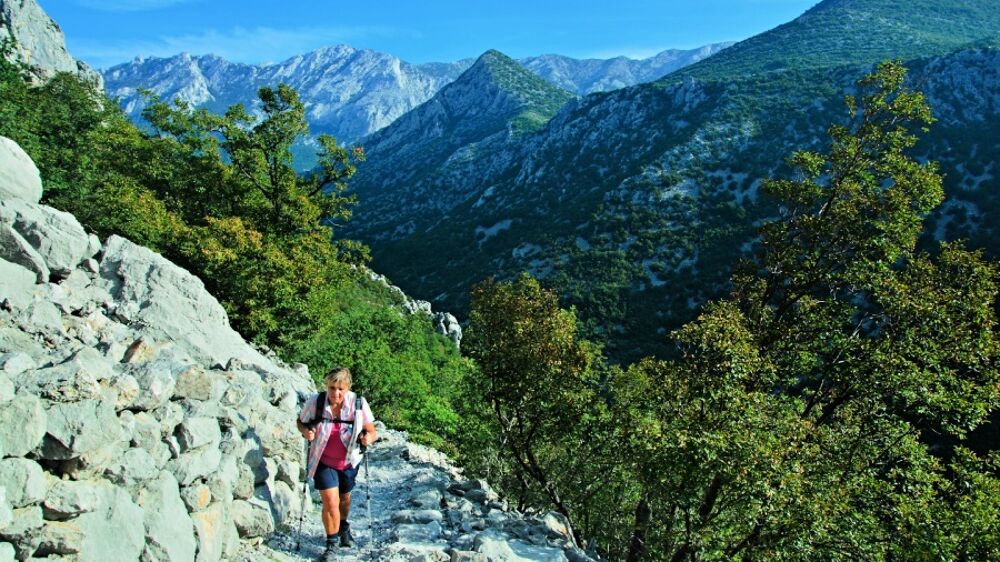
3. Reduce carbon emissions
The journey is often the biggest carbon footprint of a holiday, especially take-offs and landings, so consider buying carbon offsets, try to pick a long-haul flight with less carbon emission and fly non-stop or pick airlines that use energy-efficient aircrafts where possible. And don’t forget to make the most of public transport! During your holiday, hire an electric car or explore by bike, hop on a boat, bus or train and enjoy walking tours -adventuring off track can often be rewarded by surprising finds and scenery!
4. Opt for eco-friendly Accommodation
Sustainable hotels are businesses that significantly reduce their environmental impact through best green practices. From eco resorts to farm stays, you can enjoy accommodation with a planet-friendly approach, often promoting their eco rating system and standards with an accredited certification such as Travelife or GSTC.
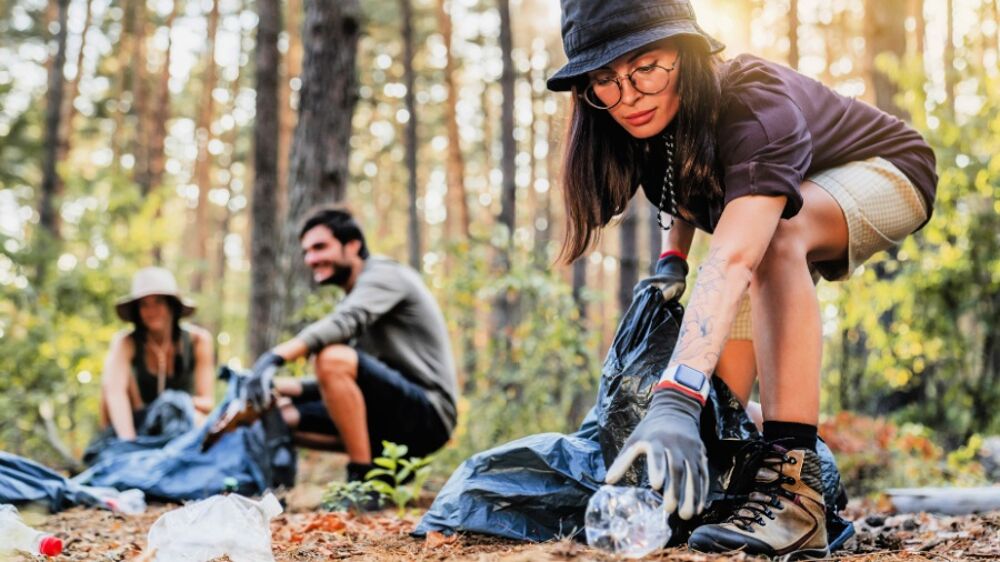
5. Waste Decomposition
As tourism recovers, lots of hotels and tour operators use disposable plastics as a hygiene precaution, with airlines using a shocking amount of plastic - mostly not recycled. Many countries lack sufficient waste management infrastructure to keep up with the plastic trash from visitors. Single-use bottles cause the worst problem, so bring your own reusable water bottle and refillable toiletry bottles on your trip! Try not to overload at buffet dinners to avoid wastage and use the recycling bins wherever possible.
6. Save Water and Energy
Us tourists often consume much more energy and water than locals and many destinations even struggle to keep up with demand. As population and global temperatures rise, so does the problem. Avoid leaving your room cards in the energy saving socket when leaving the room. Close doors and windows when you use heaters and the AC. Switch off unnecessary lights, the AC and TV (with the button, not the remote!) when not in use. Choosing quick showers over baths, using just one beach towel daily, handwashing clothes and using the “Do Not Disturb” sign to avoid over laundering all make the difference.
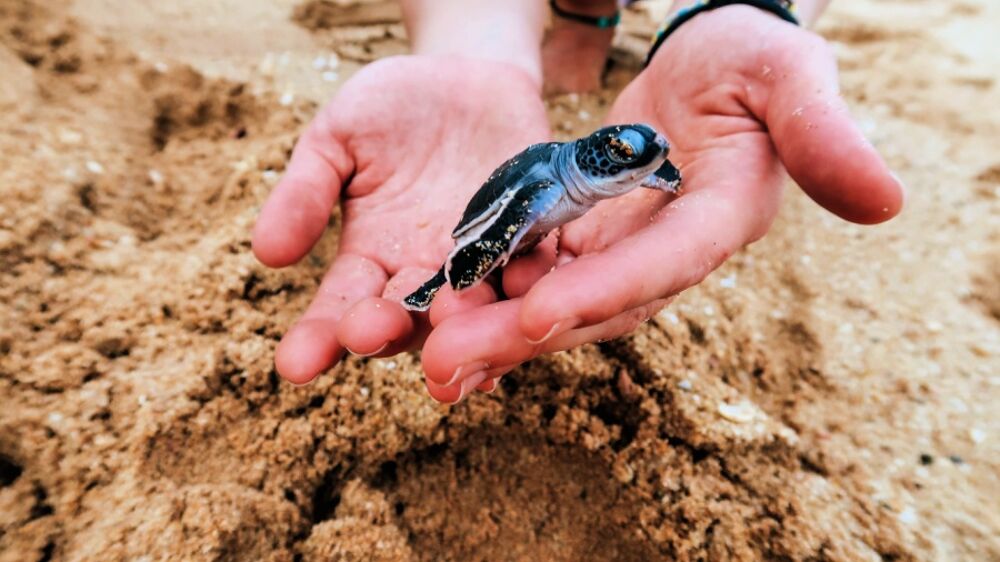
7. Respect the Animal Welfare
We all know that wilderness experiences can be amazing. By organising your trip with a trained expert who prioitises the welfare of animals and the natural world, it helps to preserve these experiences for future generations. Ask operators about their wildlife safety procedures and when on wildlife spotting tours or safaris, hold back on asking your guide to get you closer to take your snaps. Avoid animal shows and products, that encourage animals being used for money-making ventures.
8. Protect the Children
The next time you buy a souvenir from a child street-vendor or give money or gifts to begging children, think twice! Did you know that this can be harmful to the child and their family? It gives them an incentive to stay out of school, and sometimes separates them from their families and even aids organised crime. Donating money to a respectable local NGO is the most beneficial way to give back to children in need. Also, Before taking photos of children, always ask for their permission and do your homework on volunteering in orphanages before you go ahead with this plan.

9. Support the locals
In buying from local businesses, your money will be going back to the community that’s hosting you. So, whether it’s delving into local markets to enjoy their fresh produce, eating and drinking at local eateries and farm-cafés or buying souvenirs from traditional vendors rather than glossy chain-stores, there’s no better way to relay thanks. Remember to respect cultural ways such as local dress codes and adopt these, especially when visiting holy places.
10. Travel Low Season
Each destination has a certain visitor capacity. Visiting during high season causes mass consumption and harms the destination and its environment. It also contributes to an unbalanced cost of living for the locals across different seasons. Visiting the destination in low season not only eases the pressure off the environment, but also allow you benefit from off peak prices and better service as well as avoid crowds and skip the queues.
Now you’re well on your way to becoming a sustainable travel ninja, it's time to put our top tips to use and start planning your next eco-friendly escape right here.
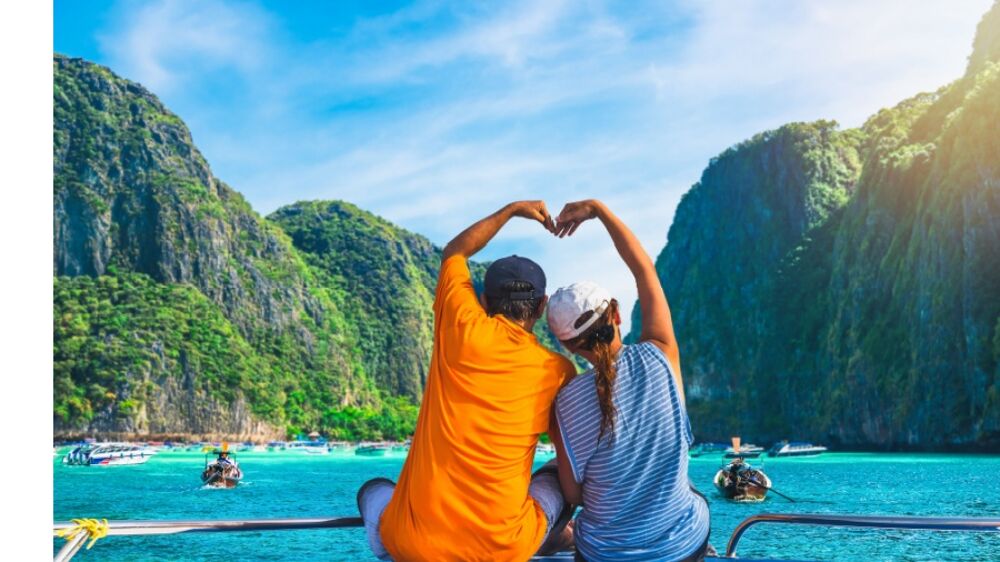
1. Check out the destination
Before your holiday, a little research on your chosen destination always comes in handy! So grab a cuppa and get online to jot down a few useful words in the spoken language, find out about the local culture and traditions, learn about its environment and biodiversity as well as how to get off the beaten path and avoid tourist traps!
2. Pre Holiday Shopping
Did you know that the fashion industry hugely contributes to the planet’s greenhouse gas emissions and plastic particles in man-made fabrics, such as polyester end up in our oceans? If you really need to splash out on new bikinis and holiday outfits beforehand, think about buying from a green and ethical business. You could also have more fun shopping at bazaars and local establishments as part of your holiday fun, where you might not only pick up enviable bargains, but also help to give back to the local community.

3. Reduce carbon emissions
The journey is often the biggest carbon footprint of a holiday, especially take-offs and landings, so consider buying carbon offsets, try to pick a long-haul flight with less carbon emission and fly non-stop or pick airlines that use energy-efficient aircrafts where possible. And don’t forget to make the most of public transport! During your holiday, hire an electric car or explore by bike, hop on a boat, bus or train and enjoy walking tours -adventuring off track can often be rewarded by surprising finds and scenery!
4. Opt for eco-friendly Accommodation
Sustainable hotels are businesses that significantly reduce their environmental impact through best green practices. From eco resorts to farm stays, you can enjoy accommodation with a planet-friendly approach, often promoting their eco rating system and standards with an accredited certification such as Travelife or GSTC.

5. Waste Decomposition
As tourism recovers, lots of hotels and tour operators use disposable plastics as a hygiene precaution, with airlines using a shocking amount of plastic - mostly not recycled. Many countries lack sufficient waste management infrastructure to keep up with the plastic trash from visitors. Single-use bottles cause the worst problem, so bring your own reusable water bottle and refillable toiletry bottles on your trip! Try not to overload at buffet dinners to avoid wastage and use the recycling bins wherever possible.
6. Save Water and Energy
Us tourists often consume much more energy and water than locals and many destinations even struggle to keep up with demand. As population and global temperatures rise, so does the problem. Avoid leaving your room cards in the energy saving socket when leaving the room. Close doors and windows when you use heaters and the AC. Switch off unnecessary lights, the AC and TV (with the button, not the remote!) when not in use. Choosing quick showers over baths, using just one beach towel daily, handwashing clothes and using the “Do Not Disturb” sign to avoid over laundering all make the difference.

7. Respect the Animal Welfare
We all know that wilderness experiences can be amazing. By organising your trip with a trained expert who prioitises the welfare of animals and the natural world, it helps to preserve these experiences for future generations. Ask operators about their wildlife safety procedures and when on wildlife spotting tours or safaris, hold back on asking your guide to get you closer to take your snaps. Avoid animal shows and products, that encourage animals being used for money-making ventures.
8. Protect the Children
The next time you buy a souvenir from a child street-vendor or give money or gifts to begging children, think twice! Did you know that this can be harmful to the child and their family? It gives them an incentive to stay out of school, and sometimes separates them from their families and even aids organised crime. Donating money to a respectable local NGO is the most beneficial way to give back to children in need. Also, Before taking photos of children, always ask for their permission and do your homework on volunteering in orphanages before you go ahead with this plan.

9. Support the locals
In buying from local businesses, your money will be going back to the community that’s hosting you. So, whether it’s delving into local markets to enjoy their fresh produce, eating and drinking at local eateries and farm-cafés or buying souvenirs from traditional vendors rather than glossy chain-stores, there’s no better way to relay thanks. Remember to respect cultural ways such as local dress codes and adopt these, especially when visiting holy places.
10. Travel Low Season
Each destination has a certain visitor capacity. Visiting during high season causes mass consumption and harms the destination and its environment. It also contributes to an unbalanced cost of living for the locals across different seasons. Visiting the destination in low season not only eases the pressure off the environment, but also allow you benefit from off peak prices and better service as well as avoid crowds and skip the queues.
Now you’re well on your way to becoming a sustainable travel ninja, it's time to put our top tips to use and start planning your next eco-friendly escape right here.




